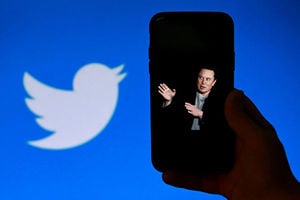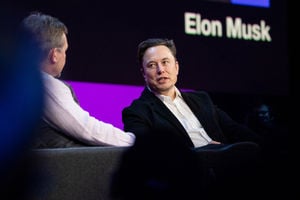
Author: Musaazi Namiti. PHOTO/COURTESY
There is no shortage of verses in the Bible talking about miracles that Jesus performed. Examples include: turning water into wine (John 2:1-11), healing the Nobleman's son (John 4:46-54), healing the paralytic (Mark 2:1-12 and Matthew 9:1-8): feeding 5,000 people (Matthew 14:13-21, Mark 6:30-44, Luke 9:10-17 and John 6:1-14), walking on water (Matthew 14:22-33 and John 6:16-21) and healing the blind man.
This list is not exhaustive, but there is no incontrovertible or scientifically verifiable evidence that Jesus performed the miracles in question. The accounts of his miracles are based on faith and are documented only in religious texts such as the New Testament.
Miracles are exceedingly rare, and maybe even what we call miracles are not miracles in the strictest sense. However, last week Elon Musk posted something on X, the social media platform he owns, which has the potential to deliver a real miracle. It could make Jesus miracles — and prayers — irrelevant.
The world’s richest man said that Neuralink, a neurotechnology company he founded in 2016 to develop brain-machine interfaces (BMIs), among other things, was developing a blindsight device that “will enable even those who have lost both eyes and their optic nerve to see”.
He went on: “Provided the visual cortex is intact, it will even enable those who have been blind from birth to see for the first time. To set expectations correctly, the vision will be at first be low resolution, like Atari graphics, but eventually it has the potential to be better than natural vision…”You cannot beat that. You really cannot.
If you are talking about miracles, that is as big a miracle as you can imagine. Neuralink’s blindsight device will be the best news ever to go the way of the blind, whom the World Health Organisation estimates are as many as 40 million around the world.
Science and technology have not solved all the problems humans are grappling with and maybe they will never, but they have been reliable unlike the texts we read in the Bible that promise great things and raise people’s hopes, but they actually do nothing. If Neuralink’s product enters the market, it will be a game changer, a verifiable miracle.
As I stated at the beginning, none of the miracles the Bible says Jesus performed is scientifically verifiable and — for reasons of his own — Jesus has never repeated any miracles since he went to live with the Lord.
The blind and physically handicapped in wheelchairs go to places of worship where pastors promise to pray for them and restore their vision, but the prayers change nothing for the better.
Yet the Bible makes it very clear that people can pray for everything or anything and get it. Matthew 7:7, Matthew 17:20, Matthew 21:21, Mark 11:24, John 14:12-14, Matthew 18:19 and James 5:15-16 clearly tell believers that they can get anything if they pray.
Mark 11:24, for example, says: "Therefore I tell you, whatever you ask for in prayer, believe that you have received it, and it will be yours."
As science and technology start to make the impossible possible, people will start to see the irrelevance of prayer and question many things they have always attributed to divine powers.
If Elon Musk can make a product that restores vision and that vision is better than natural vision, you have to wonder how God and Jesus fail? If a cat can see clearly in total darkness but humans cannot, who really gives us vision?




